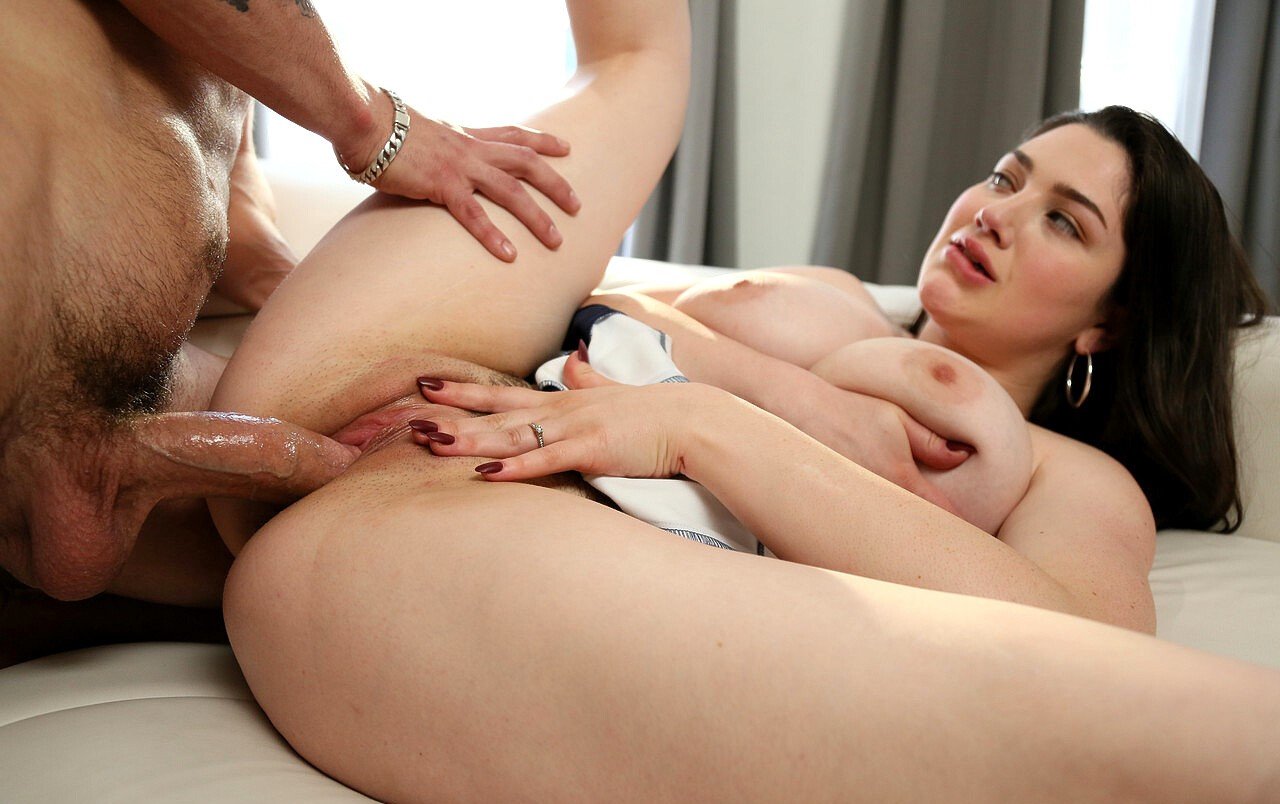What is cuckoldry, a concept which has existed in various cultural contexts throughout the ages, is when one partner in a relationship consents, or is unaware that their partner is involved with someone else during sexual activities. It might seem taboo or deviant to others, but cuckolding is a long beloved story (and often, when it comes to erotica, a device in the telling of it), exploring themes of betrayal and power and voyeuristic desire. Cuckoldry is often drawn to for its often forbidden nature, for its often complex psychological dynamics, and as it so frequently creates a spectacle of societal norms.
In writing this article, I will discuss what cuckoldry is, what types of it exists, literature and erotica representations of it, and finally its psychological motivations for why it’s seemingly so controversial. What, then, can we learn from understanding the nuances of cuckoldry so that we can better understand the role it plays in fantasy and storytelling — and why so many readers and viewers still want more of that?
Understanding Cuckoldry
The simplest definition of the term ‘cuckoldry’ is that one partner in a romantic or sexual relationship knows (or does not know) that they’re doing sexual things with other people. Cuckoldry has a historically poor view of a man whose wife cheats on him, he is a figure of ridicule or shame. ‘Cuckold’ is literally a term that comes from the behavior of the cuckoo bird, who’s the female would mate with another bird, lay her eggs in another bird’s nest, and the unsuspecting host would then have to raise the cuckoo’s babies.

Cuckoldry has changed significantly in a modern context, where the definition has expanded to involve the many modern aspects of day to day, fantasies, literature and erotica. We need to distinguish between cuckoldry as it is driven voluntarily or involuntarily, because usually it is what the medium shows and how it is perceived.
Until recently, cuckolding has been a traditionally ‘masculine’ notion of emasculation; however more recently cuckolding has evolved to paint complex power dynamics, voyeurism and tentatively exploring forbidden desires. Cuckoldry in literature, erotica and here goes beyond betrayal or infidelity, it goes into control, emotional vulnerability and how traditional gender roles are turned on their heads.
Types of Cuckold Experiences
Though most often thought of as one man witnessing his partner engaging with another, cuckoldry can come in a variety of forms based on the things that the individuals involved want, give their consent or don’t and their boundaries. In this context, cuckold experiences are often categorized into two broad types: voluntary and involuntary. The emotional and psychological aspects of these cuckoldry’s are very different, and each can drive different narrative or emotional journey.
Voluntary Cuckolding
Sometimes known as ‘consensual cuckolding’, voluntary cuckolding is when someone, usually a man, allows or invites his partner to engage in sexual activities with someone else. Many times this type of cuckoldry requires open communication between partners that includes conversations about consent and boundaries before they even begin. Usually, the attraction to voluntary cuckolding is the psychological rush of being able to watch your partner experience pleasure with someone else, plus the complicated feeling of getting turned on and jealous.
In a voluntary cuckold dynamic the cuckold (which is the man almost always) may get fulfillment out of watching his partner get some other person. There is a degree of empowerment and freedom for the partner for what’s colloquially known as the ‘hotwife’ (or ‘hot husband’) in many scenarios to explore sexual desires that do not fit within the primary relationship. To some extent, the art of cuckolding becomes an effort to conduct an investigation into what trust rusts, submission is subjected to, or if it is just an attempt to dispute the normal sexual notion.
It is this type of cuckoldry that is often seen in literature and erotica, writing about voyeurism and jealousy and dominance among other things. Often, the emotional and psychological stakes are higher in these stories as well: characters interact with coded, nonverbalized yet very present and powerful object relations in consensual, yet profoundly tabu contexts.
Involuntary Cuckolding
Involuntary cuckolding, on the other hand, has one partner (usually the man) completely unaware that his significant other is doing sexual things with someone else. A sort of cuckoldry that usually involves deception or betrayal on the part of the “cuckolded” party, often unaware that they are being cuckolded. When forced to reveal the truth, psychological aspects of involuntary cuckolding tend to be a humiliation, inadequacy, and betrayal of a man, even though they didn’t do anything wrong.

In involuntary cuckolding scenarios, the cuckold (man) is usually perceived to be in emotional distress, jealousy confusion. The dynamic can be such a dynamic usually where the person that the polyamorous partner was or was not able to be for them is powerless and vulnerable in this knowledge that they were deliberately or just not enough for that person.
In literature and in erotica involuntary cuckolding is sometimes used for emotional reaction, the emotional and psychological change of the cuckold is often worked into. Deception in these stories might also be talking about the moral and emotional limits of relations as possible participants play out trust, betrayal, or infidelity.
Cuckoldry in Literature and Erotica
Over the centuries, the subject of cuckoldry has been a popular smorgasbord of literary exploration on the subject of power, jealousy and submission. In traditional literature, cuckoldry was a source of shame and emasculation, and the cuckolded man was usually a victim, however, much to our surprise, a cuckold was far from powerless…. The cuckold figure sometimes stood as a sign of the thwarting of masculine ideals or authority, and sometimes represented a means by which to explore the intricacies of human relationships.
But indulgence in modern literature and erotica has made cuckoldry less bland and more nuanced. Today, it is used for a controlled, safe space to explore power dynamics, forbidden desires and the emotional and psychological consequences of infidelity. Cuckoldry, however, in no meanings need be a negative or shameful theme, and may rather be used as a conceptual launch point for deeper self-introspection, sexual liberation, or emotional development, especially in these genres.
Erotica has taken up the cudgel so much, perhaps most of all queer erotic fiction, of cuckoldry as a genre, positioning characters in places where power, control, and desire are taken up as a taboo fantasy. The emotional nature of cuckoldry — of feeling caught up in jealousy, humiliation, arousal, submission — lends itself to more or less all of its erotic appeal: either with consent or even violence. In erotica, it ranges from emotions intertwined with physical and psychological desires, to a forbidden attraction.

Indeed, many modern works of cuckoldry erotica contain a heterosexual component which includes voyeurism and exhibitionism, as the cuckolded partner is as often excited as the other party to watch their beloved do things with someone else. By giving them such fantasies, they can explore emotions they otherwise wouldn’t (some readers may not be exposed to humiliation, dominance, and submission emotions).
The Psychology Behind Cuckoldry
But there is deep psychological basis for the cuckoldry, for the things we want, the feelings we possess, the fantasies we have. The act itself of the cuckoldry is possibly confusing or distressing to some, but robust to most since it can represent a complicated scenario where power, trust and desire all have a role. Power dynamics is one of the corner psychological elements of cuckolding itself. Control often shifts in a shift of cuckoldry, whether it is the vulnerably wobbly cuckolded partner or the empowered status of the partner dating the ‘outside’ person.
Cuckoldry also taps into some desires of submission and humiliation, for some. It can be a relation like watching one’s partner watching someone with someone else, this can cause a powerful emotional reaction: jealousy and arousal. This emotional cocktail can take the form of an emotional release, where people can address their own insecurities and desires in a comfortable controlled way.
In other cases, it explores the elements of dominance and control. At its core, it empowers the partner seeing the person with someone else, it could also make the partner who’s not seeing the other person feel aroused seeing their submission or their humiliation. This dynamic may also call up feelings of voyeurism or exhibitionism whereby the cuckolded partner watches or imagines their partner having sex with other people.

However, cuckoldry, both voluntary and involuntary, is a consensual fantasy in the world of fiction and erotica, so it is important to point out it’s the case. While these desires might sound unusual, they often become a way to broach the difficulties of trust, boundary and sexual identity. Cuckoldry becomes a healthy emotional outlet if someone approached it with mutual consent, understanding, and respect.
Read Also: Celebrating LGBTQ+ Erotica: Stories of Passion and Desire
Conclusion
The exploration of power, submission, humiliation and desire has long been a fertile subject in literature, erotica and human relationships of interest — and now, with the advent of the engaged cuckquean audience, decidedly a client segment, it has achieved a new level of importance. Cuckoldry often seems to have appeal due to its own taboo, and the emotional and psychological fallout that can accompany it. Cuckoldry, whether voluntary or involuntary, offers up a welcome opportunity to draw on complex pathways of control, arousal, jealousy, and vulnerability to attempt an exploration of one’s deepest desires in a consensual and safe manner.
Cuckold is a tone in which we read literature and erotica to understand the intricacies of relationships and human emotions. Cuckoldry provides a delightful narrative device for teasing out the psychology of desire and the rim of social and sexual norms from the vantage of this lens, and the responses reflect that. The act of cuckolding — a term for the act of an individual having sex with a partner that either they or their partner perceive to be sex itself with their partner — may or may not be to the taste of every sex story lover out there, but as a subject matter, even taboo acts are a perennial favorite of the genre.
FAQs
1. What is cuckoldry in modern contexts?
Today, Cuckoldry is a term used to describe a relationship dynamic in which one of the partners permits or does not know that his or her important other has a sexual relationship with somebody else. Sometimes voluntary, sometimes involuntary and always complicated by feelings like power, jealousy and submission, it is a derangement of the appetite for power.
2. What are the psychological reasons people are drawn to cuckoldry?
Cuckoldry tends to have a power dynamic aspect, humiliation and arousal. It is for some a desire for submission or dominance, for others it is the emotional charge and voyeuristic element of watching a partner with someone else.
3. Is cuckoldry always about humiliation?
Cuckoldry does not mean being humiliated all the time. It can be consensual exploration of power, trust, and boundaries, in many cases. Humiliation may be involved, but for others it can also involve power, or sexual liberation.
4. What types of cuckold experiences exist?
There are voluntary or involuntary cuckolding experiences. A voluntary cuckolding experience, for example, occurs when one of the couples engages in cause by the other partner’s consent, while an involuntary cuckolding experience occurs when one of the partners is not aware of the other partner’s infidelity. The question is what types look at, combining both types explore different emotional and psychological dynamics.
5. How is cuckoldry portrayed in literature and erotica?
Cuckoldry is in literature and erotica for a reason — it’s a device that explores jealousy, betrayal, power, and submission. Cuckold seen as a complex, emotional experience where characters find commandeered the psychological and sexual aspects of the cuckold dynamic.











 © 2025 Marketer • Built with
© 2025 Marketer • Built with